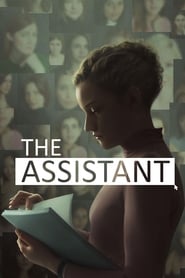Beyond its shrewd engagement with […] a deeply charged set of sociocultural reference points […], The Assistant resonates as an allegory about the fundamentally draining nature of corporate work, which it depicts not simply as demoralizing but amoralizing, as well. […] The Assistant has been structured to occlude any reality beyond the tightly packed warren of lobbies, conference rooms, and cubicles that make up its setting. Anything that happens before or after the duration of the work day doesn’t exist. […] We’re sympathetic to Jane insofar as she becomes a functionary-slash–punching bag for all kinds of bad (and worse) male behavior, and yet her unwillingness to cash out—especially after her attempt at an intervention ends in humiliation—complicates any trajectory of pure victimhood. […] Several critics have cited the late Belgian master filmmaker Chantal Akerman’s 1975 domestic epic Jeanne Dielman as a point of comparison for Green’s achievement—specifically the way both movies pressurize and politicize downtime by focusing on repetitive, ritualistic behavior. […] Green doesn’t go too far in illustrating the kind of movies that Jane’s company specializes in: a few posters and a priceless cameo […] are the only explicit showbiz signifiers. The suggestion, though, is that its output is catering to a sophisticated, metropolitan demographic—for example, the kind of audience that would go see The Assistant at a film festival, which adds a layer of autocritique to a movie that’s already considerably more spacious on the inside than the outside.
— Adam Nayman (The Ringer)
The Substance is tedious, overly explanatory body-horror – like a film made by David Cronenberg if he possessed no feeling or wit (mostly it's a film about having packages delivered). But I don’t think I would have been so frustrated and irritated by it if I felt cinema was responding in any adequate or interesting way to a post-#MeToo world. We’ve had failures in the form of Promising Young Woman (2022), boring procedurals like She Said (2022). The Substance joins Andrew Dominik’s Blonde (2022) in treating a woman with total contempt and passing it off as progress. The only film that captured what it’s like to inhabit the aggressive atmosphere created by a bullying coward is Kitty Green’s The Assistant (2019). Where have all these powerless, humiliated, punished women come from? What I dislike most is how it forecloses all possibility. What if a woman found ageing hilarious? What if she is more than content to be alone? Everything is as prescriptive as a strict skincare routine.
— Nicole Flattery: Sight and Sound, December 2024

